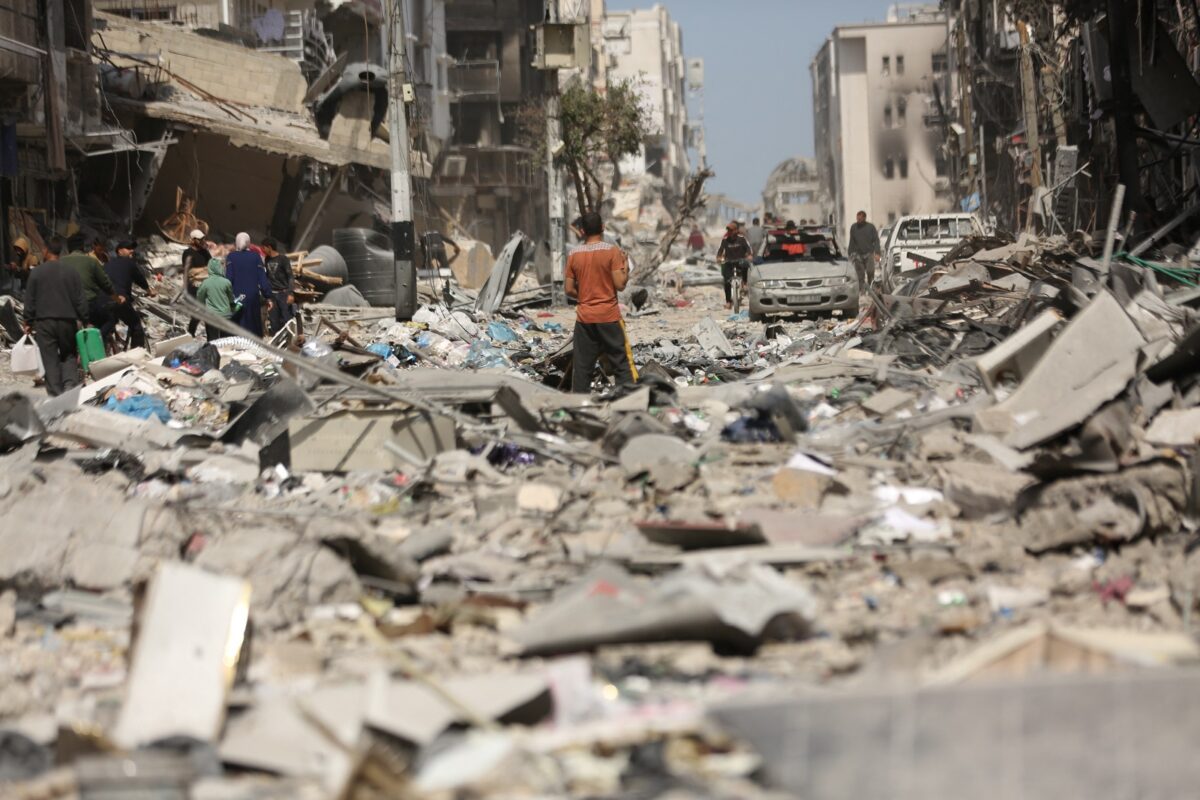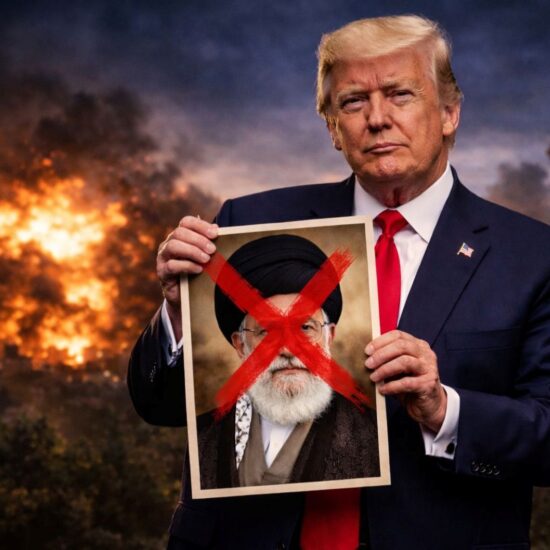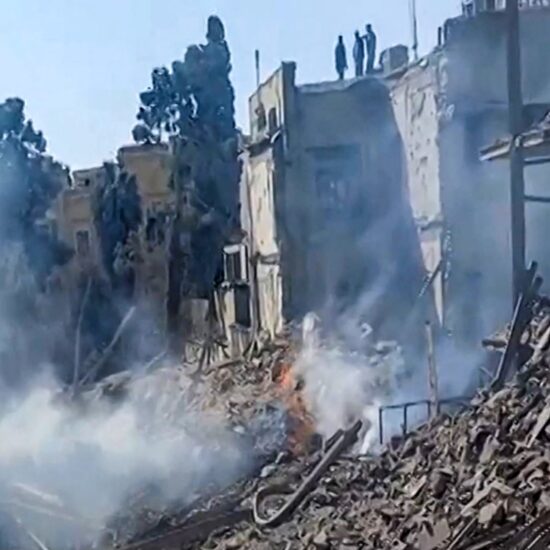
As Ramadan nears its conclusion, prospects for a ceasefire in Gaza remain distant. Furthermore, Amidst the weekend’s Easter celebrations, the birthplace of Jesus Christ continues to endure relentless bombings, yet political action remains absent. The long weekend came to a close with revelations of the harrowing aftermath of Israel’s operation at the Al Shifa hospital.
After a two-week siege, the Israeli occupation forces have finally withdrawn from the largest hospital complex in the Gaza Strip, leaving behind scenes of utter devastation. Upon their departure early Monday, hundreds of Palestinians flocked to the hospital and its surroundings in search for loved ones, only to discover a haunting landscape. Bodies lay scattered both inside and outside the facility.
The world recoiled in horror as images of the hospital compound and its surrounding areas emerged online, depicting a grim scene of abandonment, fire damage, and complete destruction. The exact number of casualties remains unknown, adding to the sense of tragedy.
Al-Shifa Hospital stood as the principal medical hub within the Gaza Strip, situated in the northern Rimal neighborhood of Gaza City. Initially founded by the government of Mandatory Palestine in 1946, its facilities underwent expansion during the periods of Egyptian and subsequent Israeli control.
Israel has claimed that Hamas used Al Shifa hospital to build secret tunnels and despite the lack of evidence, the hospital now lies in shambles with a slew of massacres yet to be uncovered.
March 30, 2024, Negotiations for a Gaza ceasefire and a potential exchange of prisoners are anticipated to recommence on Sunday in Cairo, Egypt. Meanwhile, Tel Aviv witnessed its most significant protests against the government and for the release of captives since the onset of the conflict.
April 2, 2024, US-based aid organization World Central Kitchen has confirmed the death of seven of its staff members in what they describe as a “targeted attack” by the Israeli Occupation forces. The organization has called on the Israeli military to cease this “indiscriminate killing.”
Among those who lost their lives were individuals hailing from Palestine, Australia, Poland, the UK, and a dual citizen of the US and Canada.
In Lebanon
Hezbollah commander killed: An Israeli warplane targeted Ismail al-Zin in a vehicle in Kounine, south Lebanon, the military reported on March 31.
Al-Zin was described by the Israelis as a “significant commander” in Hezbollah’s anti-tank Radwan unit, which led attacks in northern Israel.
“Al-Zin was a significant source of knowledge regarding anti-tank missiles and was responsible for dozens of anti-tank missile attacks against Israeli civilians, communities and security forces,” the Israeli military said in a post on Telegram.
UN peacekeepers wounded: On March 30, the United Nations reported that four of its military observers sustained injuries when a shell detonated in close proximity to them in southern Lebanon. This region has been a site of ongoing cross-border exchanges between Israel and the Hezbollah movement since Israel’s military campaign in Gaza commenced last October.
According to Lebanon’s official National News Agency, Israel was the culprit behind the attack. However, the United Nations Truce Supervision Organization (UNTSO) has yet to determine the source of the shelling.
Easter celebrations: Amidst the ongoing political upheaval in Lebanon, there was a sense of blessedness as certain Christian denominations, following the Western calendar, observed Easter. Videos capturing prayers and masses conducted in various churches across the region circulated online, briefly restoring a semblance of normalcy to the atmosphere.
New fuel prices increase: As of today, the cost of 95 and 98 octane fuel has risen by LBP 28,000. Conversely, diesel prices have decreased by LBP 1,000, and gas prices have dropped by LBP 4,000.
In the region
An escalation? : On April 1, an airstrike, believed to have been carried out by Israeli warplanes, targeted Iran’s embassy compund in Syria. Iran reported that seven of its military advisors, including three senior commanders, were killed in the attack, indicating a significant escalation in Israel’s conflict with its regional foes.
Witnesses, including Reuters reporters present in the Mezzeh district of Damascus, observed emergency responders navigating through the debris of a demolished structure within the diplomatic compound. This building was adjacent to the main Iranian embassy. Outside, emergency vehicles were stationed, while an Iranian flag fluttered from a pole amidst the wreckage.
According to CNN, the Israel Defense Forces was not willing to comment on foreign reports regarding the incident. A military spokesperson told CNN, however, that a “military building of Quds forces” was hit and not a consulate.
On Monday, April 1, the US State Department spokesperson Matthew Miller said neither the target nor responsible party had been confirmed.
“Before we have gathered information about what exactly this was, I don’t want to speak to it specifically,” Miller added. “But of course, we’re always concerned about anything that would be escalatory or cause an increase in conflict in the region.”
Iranian proxy Hezbollah, the Lebanese group, has vowed retaliation.”This crime will not pass without the enemy receiving punishment and revenge,” the group said in a statement.
US approves more funds: According to The Washington Post, the United States has approved the transfer of billions of dollars worth of military weapons to Israel, despite recently voicing concerns about the possible Israeli invasion of Gaza’s Rafah and the increasing number of civilian casualties.
The aid will include “more than 1,800 MK84 2,000-pound bombs and 500 MK82 500-pound bombs, according to Pentagon and Department of State officials, the Washington Post reported on Friday.”
While publicly urging the Israeli military to reduce its involvement in the conflict, Washington’s policy actions suggest a contradictory message. Additionally, the Israeli forces have announced plans for a forthcoming ground invasion of Rafah, the city bordering Egypt, which currently shelters half a million forcibly displaced Palestinians.
US Senator Bernie Sanders condemned the move as “obscene”.
“The US cannot beg Netanyahu to stop bombing civilians one day and the next send him thousands more 2,000-pound bombs that can level entire city blocks,” he said in a post on X.
“We must end our complicity: No more bombs to Israel.”
New Palestinian government: On March 31, a new Palestinian government was sworn in, comprising individuals from Gaza as well as four women. However, despite its inauguration, the government is already met with skepticism from its own populace.
Under the leadership of Mahmoud Abbas, the Palestinian Authority faces pressure from Washington to step up and initiate reforms in the aftermath of the Gaza conflict.
Prime Minister Mohammed Mustafa emphasized that the “top national priority” of his government is to end the ongoing war as he introduced his new team. He further expressed the cabinet’s commitment to formulating strategies aimed at reunifying institutions, including assuming responsibility for Gaza.
What We’re Reading
What the Hell is the Point of the UN?: Political psychologist Ramzi Abou Ismail delves into the complexities surrounding the enforcement of UN resolutions, shedding light on issues of bias and inequality within the organization. However, envisioning a world without the United Nations paints a bleak picture, where international diplomacy and cooperation falter, giving rise to a fragmented landscape of nations each pursuing individual agendas in isolation. Without a centralized body to mediate conflicts, the risk of disputes escalating unchecked looms large, with no impartial arbitrator to steer the course towards resolution. The absence of the UN would create a worse reality than the one we are currently living in.
Beirut Embraces Ramadan: Journalist Rodayna Raydan’s writing captures the essence of Beirut amidst the holy month of Ramadan. She paints a picture of the city’s resilience in the face of ongoing crises. Despite the challenges Lebanon faces, Beirut remains a beacon of strength, as demonstrated by the thousands of Lebanese gathering to embrace the Ramadan spirit. Raydan highlights the captivating beauty and grace of Beirut, the shops, the deocation, the atmosphere, the cuisine and more, which sometimes offers a reprieve from its harsh realities.
Illicit Funding and Cash Economy: Journalist Maan Barazy delves into the growing concerns surrounding Lebanon’s cash-based economy, suggesting that it might be inadvertently aiding money launderers in masking the origins of funds for Hamas’ activities. The reliance on cash transactions, increasingly prevalent in Lebanon, poses a significant risk of regressing the progress made before 2019, leaving the economy vulnerable to financial crime.
Lebanon +
In their latest episode of “Sarde after dinner,” the hosts engaged in a conversation with fellow podcasters Rana and Jawad from “Chou Maken,” renowned for their viral clip featuring the popular soundbite “Kifak Jawad?” They delved into the origins of Rana and Jawad’s podcast, discussing how they attained viral fame and reflecting on the surreal nature of life in Lebanon. However, the hosts also touched upon the challenges of going viral, highlighting how it has added unexpected complexities to their lives. They shared anecdotes of encountering strangers, which has sparked a sense of unease and raised concerns about personal safety, as they navigate newfound attention from unknown individuals.








